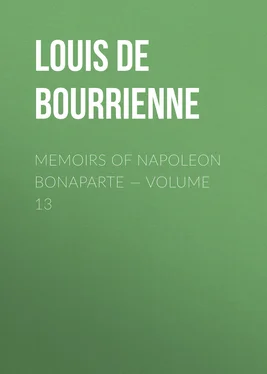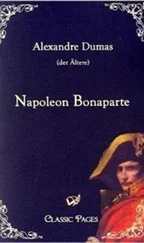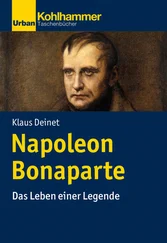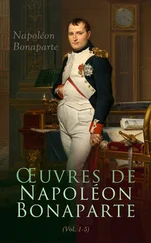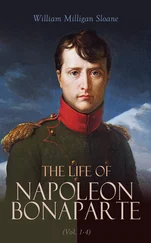Louis Bourrienne - Memoirs of Napoleon Bonaparte — Volume 13
Здесь есть возможность читать онлайн «Louis Bourrienne - Memoirs of Napoleon Bonaparte — Volume 13» — ознакомительный отрывок электронной книги совершенно бесплатно, а после прочтения отрывка купить полную версию. В некоторых случаях можно слушать аудио, скачать через торрент в формате fb2 и присутствует краткое содержание. Жанр: Биографии и Мемуары, История, foreign_edu, foreign_antique, foreign_prose, на английском языке. Описание произведения, (предисловие) а так же отзывы посетителей доступны на портале библиотеки ЛибКат.
- Название:Memoirs of Napoleon Bonaparte — Volume 13
- Автор:
- Жанр:
- Год:неизвестен
- ISBN:нет данных
- Рейтинг книги:3 / 5. Голосов: 1
-
Избранное:Добавить в избранное
- Отзывы:
-
Ваша оценка:
- 60
- 1
- 2
- 3
- 4
- 5
Memoirs of Napoleon Bonaparte — Volume 13: краткое содержание, описание и аннотация
Предлагаем к чтению аннотацию, описание, краткое содержание или предисловие (зависит от того, что написал сам автор книги «Memoirs of Napoleon Bonaparte — Volume 13»). Если вы не нашли необходимую информацию о книге — напишите в комментариях, мы постараемся отыскать её.
Memoirs of Napoleon Bonaparte — Volume 13 — читать онлайн ознакомительный отрывок
Ниже представлен текст книги, разбитый по страницам. Система сохранения места последней прочитанной страницы, позволяет с удобством читать онлайн бесплатно книгу «Memoirs of Napoleon Bonaparte — Volume 13», без необходимости каждый раз заново искать на чём Вы остановились. Поставьте закладку, и сможете в любой момент перейти на страницу, на которой закончили чтение.
Интервал:
Закладка:
—[A few days after this visit Alexander paid his respects to Bonaparte's other wife, Josephine. In this great breaking up of empires and kingdoms the unfortunate Josephine, who had been suffering agonies on account of the husband who had abandoned her, was not forgotten. One of the first things the Emperor of Russia did on arriving at Paris was to despatch a guard for the protection of her beautiful little palace at Malmaison. The Allied sovereigns treated her with delicacy and consideration.
"As soon as the Emperor Alexander knew that the Empress Josephine had arrived at Malmaison he hastened to pay her a visit. It is not possible to be more amiable than he was to her. When in the course of conversation he spoke of the occupation of Paris by the Allies, and of the position of the Emperor Napoleon, it was always in perfectly measured language: he never forgot for a single instant that be was speaking before one who had been the wife of his vanquished enemy. On her side the ex-Empress did not conceal the tender sentiments, the lively affection she still entertained for Napoleon . . . . Alexander had certainly something elevated and magnanimous in his character, which would not permit him to say a single word capable of insulting misfortune; the Empress had only one prayer to make to him, and that was for her children."]—
This visit was soon followed by those of the other Allied Princes.
"The King of Prussia and the Princes, his sons, came rather frequently to pay their court to Josephine; they even dined with her several times at Malmaison; but the Emperor Alexander come much more frequently. The Queen Hortense was always with her mother when she received the sovereigns, and assisted her in doing the honours of the house. The illustrious strangers exceedingly admired Malmaison, which seemed to them a charming residence. They were particularly struck with the fine gardens and conservatories."
From this moment, however, Josephine's health rapidly declined, and she did not live to see Napoleon's return from Elba. She often said to her attendant, "I do not know what is the matter with me, but at times I have fits of melancholy enough to kill me." But on the very brink of the grave she retained all her amiability, all her love of dress, and the graces and resources of a drawing-room society. The immediate cause of her death was a bad cold she caught in taking a drive in the park of Malmaison on a damp cold day. She expired on the noon of Sunday, the 26th of May, in the fifty-third year of her age. Her body was embalmed, and on the sixth day after her death deposited in a vault in the church of Ruel, close to Malmaison. The funeral ceremonies were magnificent, but a better tribute to the memory of Josephine was to be found is the tears with which her children, her servants, the neighbouring poor, and all that knew her followed her to the grave. In 1826 a beautiful monument was erected over her remains by Eugene Beauharnais and his sisters with this simple inscription:
TO JOSEPHINE. EUGENE. HORTENSE.CHAPTER II
1814.
Italy and Eugene—Siege of Dantzic-Capitulation concluded but not ratified-Rapp made prisoner and sent to Kiow—Davoust's refusal to believe the intelligence from Paris—Projected assassination of one of the French Princes—Departure of Davoust and General Hogendorff from Hamburg—The affair of Manbreuil—Arrival of the Commissioners of the Allied powers at Fontainebleau—Preference shown by Napoleon to Colonel Campbell—Bonaparte's address to General Kohler—His farewell to his troops—First day of Napoleon's journey—The Imperial Guard succeeded by the Cossacks—Interview with Augerean— The first white cockades—Napoleon hanged in effigy at Orgon—His escape in the disguise of a courier—Scene in the inn of La Calade— Arrival at Aix—The Princess Pauline—Napoleon embarks for Elba—His life at Elba.
I must now direct the attention of the reader to Italy, which was the cradle of Napoleon's glory, and towards which he transported himself in imagination from the Palace of Fontainebleau. Eugene had succeeded in keeping up his means of defence until April, but on the 7th of that month, being positively informed of the overwhelming reverses of France, he found himself constrained to accede to the propositions of the Marshal de Bellegarde to treat for the evacuation of Italy; and on the 10th a convention was concluded, in which it was stipulated that the French troops, under the command of Eugene, should return within the limits of old France. The clauses of this convention were executed on the 19th of April.
—[Lord William Bentinck and Sir Edward Pellew had taken Genoa on the 18th Of April. Murat was in the field with the Austrians against the French.]—
Eugene, thinking that the Senate of Milan was favourably disposed towards him, solicited that body to use its influence in obtaining the consent of the Allied powers to his continuance at the head of the Government of Italy; but this proposition was rejected by the Senate. A feeling of irritation pervaded the public mind in Italy, and the army had not proceeded three marches beyond Mantua when an insurrection broke out in Milan. The Finance Minister, Pizna, was assassinated, and his residence demolished, and nothing would have saved the Viceroy from a similar fate had he been in his capital. Amidst this popular excitement, and the eagerness of the Italians to be released from the dominion of the French, the friends of Eugene thought him fortunate in being able to join his father-in-law at Munich almost incognito.
—[Some time after Eugene visited France and had a long audience of Louis XVIII. He announced himself to that monarch by his father's title of Marquis de Beauharnais. The King immediately saluted him by the title of Monsieur le Marechal, and proposed that he should reside in France with that rank. But this invitation Eugene declined, because as a French Prince under the fallen Government he had commanded the Marshals, and he therefore could not submit to be the last in rank among those illustrious military chiefs. Bourrienne.]—
Thus, at the expiration of nine years, fell the iron crown which Napoleon had placed on his head saying, "Dieu me l'a donne; gare a qui la touche."
I will now take a glance at the affairs of Germany. Rapp was not in France at the period of the fall of the Empire. He had, with extraordinary courage and skill, defended himself against a year's siege at Dantzic. At length, being reduced to the last extremity, and constrained to surrender, he opened the gates of the city, which presented nothing but heaps of ruins. Rapp had stipulated that the garrison of Dantzic should return to France, and the Duke of Wurtemberg, who commanded the siege, had consented to that condition; but the Emperor of Russia having refused to ratify it, Rapp, having no means of defence, was made prisoner with his troops; and conducted to Kiow, whence he afterwards returned to Paris, where I saw him.
Hamburg still held out, but at the beginning of April intelligence was received there of the extraordinary events which had delivered Europe from her oppressor. Davoust refused to believe this news, which at once annihilated all his hopes of power and greatness. This blindness was persisted in for some time at Hamburg. Several hawkers, who were marked out by the police as having been the circulators of Paris news, were shot. An agent of the Government publicly announced his design of assassinating one of the French Princes, in whose service he was said to have been as a page. He said he would go to his Royal Highness and solicit to be appointed one of his aides de camp, and that, if the application were refused, as it probably would be, the refusal would only confirm him in his purpose.
At length, when the state of things was beyond the possibility of doubt, Davoust assembled the troops, acquainted them with the dethronement of the Emperor, hoisted a flag of truce, and sent his adhesion to the Provisional Government. All then thought of their personal safety, without losing sight of their honestly-acquired wealth. Diamonds and other objects of value and small bulk were hastily collected and packed up. The Governor of Hamburg, Count Hogendorff, who, in spite of some signal instances of opposition, had too often co-operated in severe and vexatious measures, was the first to quit the city. He was, indeed, hurried off by Davoust; because he had mounted the Orange cockade and wished to take his Dutch troops away with him. After consigning the command to General Gerard, Davoust quitted Hamburg, and arrived at Paris on the 18th of June.
Читать дальшеИнтервал:
Закладка:
Похожие книги на «Memoirs of Napoleon Bonaparte — Volume 13»
Представляем Вашему вниманию похожие книги на «Memoirs of Napoleon Bonaparte — Volume 13» списком для выбора. Мы отобрали схожую по названию и смыслу литературу в надежде предоставить читателям больше вариантов отыскать новые, интересные, ещё непрочитанные произведения.
Обсуждение, отзывы о книге «Memoirs of Napoleon Bonaparte — Volume 13» и просто собственные мнения читателей. Оставьте ваши комментарии, напишите, что Вы думаете о произведении, его смысле или главных героях. Укажите что конкретно понравилось, а что нет, и почему Вы так считаете.
